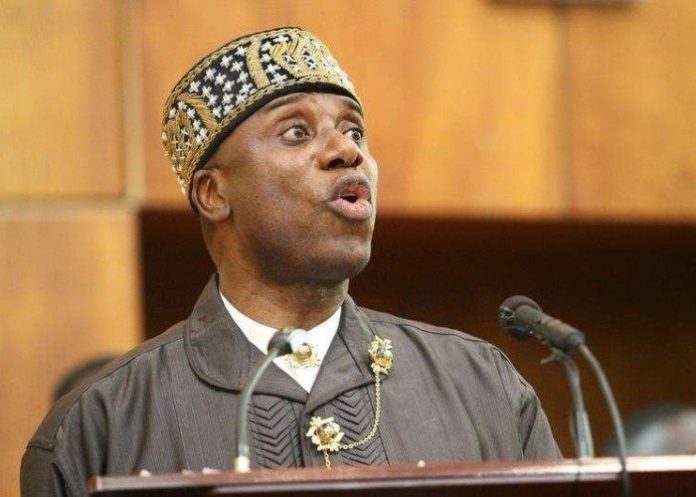The Minister of Transportation, Mr Rotimi Amaechi, has said the ongoing National Assembly investigation may frustrate the N500 million loan agreement between Nigeria and China to finance the Port Harcourt to Maiduguri rail project.
Amaechi, who stated this in a statement yesterday in Abuja, said the Chinese government had said if there were issues, the negotiations would not be concluded.
“The investigation being carried out by National Assembly may frustrate the loan agreement between us and China on the Port Harcourt to Maiduguri rail project.
“So, if tomorrow we are unable to construct Port Harcourt to Maiduguri railway because we didn’t get the loan, it is because of the investigation by NASS.
“I told the National Assembly that they can investigate but they should allow us get the loan first.
“If they stop the work from Ibadan to Kano, it is because of the investigations, same with Lagos to Calabar railway.
“If you think there is corruption, investigate corruption. What we are saying is that we should conclude negotiation first because there is pressure affecting the Chinese government in which they are talking to us directly. So, for me, what is primary here should be national interest.
“We have the approval to construct the Lagos-Ibadan, Lagos-Kano and Lagos-Calabar rail lines; we are also at the point of negotiating for the loans.
“Summoning us to the National Assembly to come and address the loans would look like the government is no longer interested in the loan,” Amaechi said.
On plans to repay the loans, the minister said profit generated from the train service would be used through a special account to be opened for that purpose.
Amaechi, however, debunked insinuations that the Chinese loan was being paid directly to the federal government to execute the rail projects.
“One good thing about the loan we are collecting is that they are not paid to us, they are paid directly to the contractors who execute those projects,” he explained.
He also debunked claims by the National Assembly that the amount of indebtedness of the country to foreign countries was tantamount to ceding the country’s sovereignty to other nations, particularly China.
According to him, loans being accessed from foreign financial bodies are for infrastructural development, with payment stretched across an agreed period , adding that as a result, an escrow account managed by the Federal Ministry of Finance had been opened, with the Nigerian Railway Corporation, NRC, making monthly payments towards loan repayment.
Amaechi disclosed he would appear again before the House of Representatives on August 17, 2020, to give insight into the commercial loan agreement signed between Nigeria and Export-Import Bank of China to the tune of $5.3 billion.
“If there were financial institutions within the country that could loan the ministry such enormous sums of money, there would be no need seeking funds across shores,” he said.
He, however expressed confidence that the project when completed, would not only have the capacity to repay the loans but also generate revenue for the country, as well as create employment for the teeming unemployed youths in the land.
On insecurity on Nigerian waterways, Amaechi said that it was time for the federal government to address the issues of companies making money from insecurity in the country.
He said that the ministry was set to address the issue by executing the $195 million contract meant to address the problem of insecurity on the waterways.
He also urged security personnel at Abuja train stations not to allow anyone access into the railway complex without wearing a face mask.
The minister, who gave the order while on a visit to Idu Abuja train terminal to inspect passengers compliance to COVID-19 safety measures, following the reopening of the Abuja – Kaduna train services after a four-month lockdown occasioned by the pandemic, noted that incidences of eminent personalities flouting the Nigerian Centre for Disease Control, NCDC, COVID-19 safety measures at airports would not be condoned at train stations.
While calling on Nigerians to imbibe the simple, safety basics, he noted that “protecting ourselves against COVID-19 takes no special training.”
Vanguard
